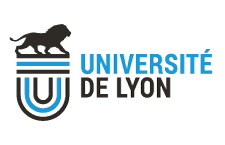Research Internship
Research Internship (UE S2-6)
The Master of Nanoscale Engineering places great emphasis on immersing the students in research laboratories so that they can see the practical application of the subjects covered in the courses and thus acquire a deeper and broader understanding.
In this project, the students will actively integrate themselves into the process of research. They will typically work as a part of a research group, in one of the laboratories affiliated to the master.
There will include a bibliographic study, the development of meaningful assumptions, experiments (eventually numerical ones) or simulations, and the analysis of their results.
Through this, they will be given the opportunity to get to know the different professions associated with research, as well as to discover the various facets of the work undertaken by a researcher.
In this project, the students will actively integrate themselves into the process of research. They will typically work as a part of a research group, in one of the laboratories affiliated to the master.
There will include a bibliographic study, the development of meaningful assumptions, experiments (eventually numerical ones) or simulations, and the analysis of their results.
Through this, they will be given the opportunity to get to know the different professions associated with research, as well as to discover the various facets of the work undertaken by a researcher.
Examples of internship projects
- The impact of externally-imposed electric current on pattern formation
- Microfluidic microsystems dedicated to cell electrofusion and manipulation
- Selective epitaxy of III-V nanowires by surface lithography on silicon dioxide/silicon substrates
- Molecular modeling of super-repellent surfaces
- Gadolinium nanoparticles for therapeutic and theranostic applications
- Morphological study of the HIV-1 virus by atomic force microscopy
- Interaction of an antimicrobial protein with membrane models (Langmuir films and supported bilayers)
- Fabrication and characterization of silicon carbide and silicon nitride thin membranes
- Pulsed laser deposition of organic multilayers for high-performance thin-film transistors
- Electrospinning of polymeric nano-fibres for applications as sensors and actuators
- Growth of oxide nanowires on silicon by molecular beam epitaxy using the vapor-liquid-solid method
- Plasmonic luminescence enhancement of GaN- and GaAs-based quantum wire diodes
- Development of tomography at the mesoscopic scale based on scanning electron microscopy
- Fabrication of nanochannels in Teflon and study of fluidic transport phenomena
- III-V semiconductor nanowires with deposition of surface colloids
- Study of single-cell encapsulation
- A system for manufacturing polymeric capsules for drug delivery
Evaluation
- Dissertation
course volume
- A 7 weeks minimum perdiod full-time in semester 2
- ECTS: 9



 WebAdmin
WebAdmin

